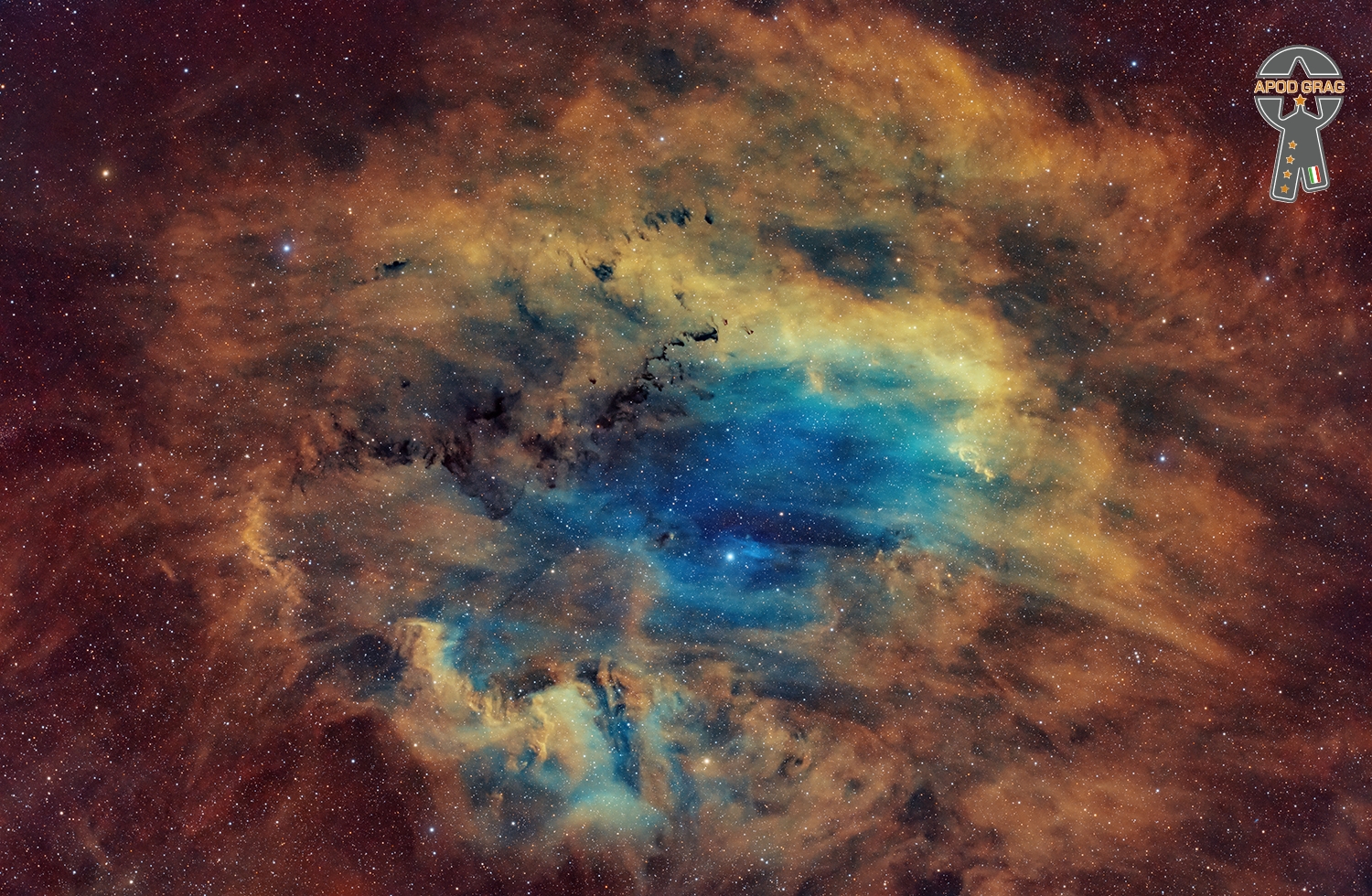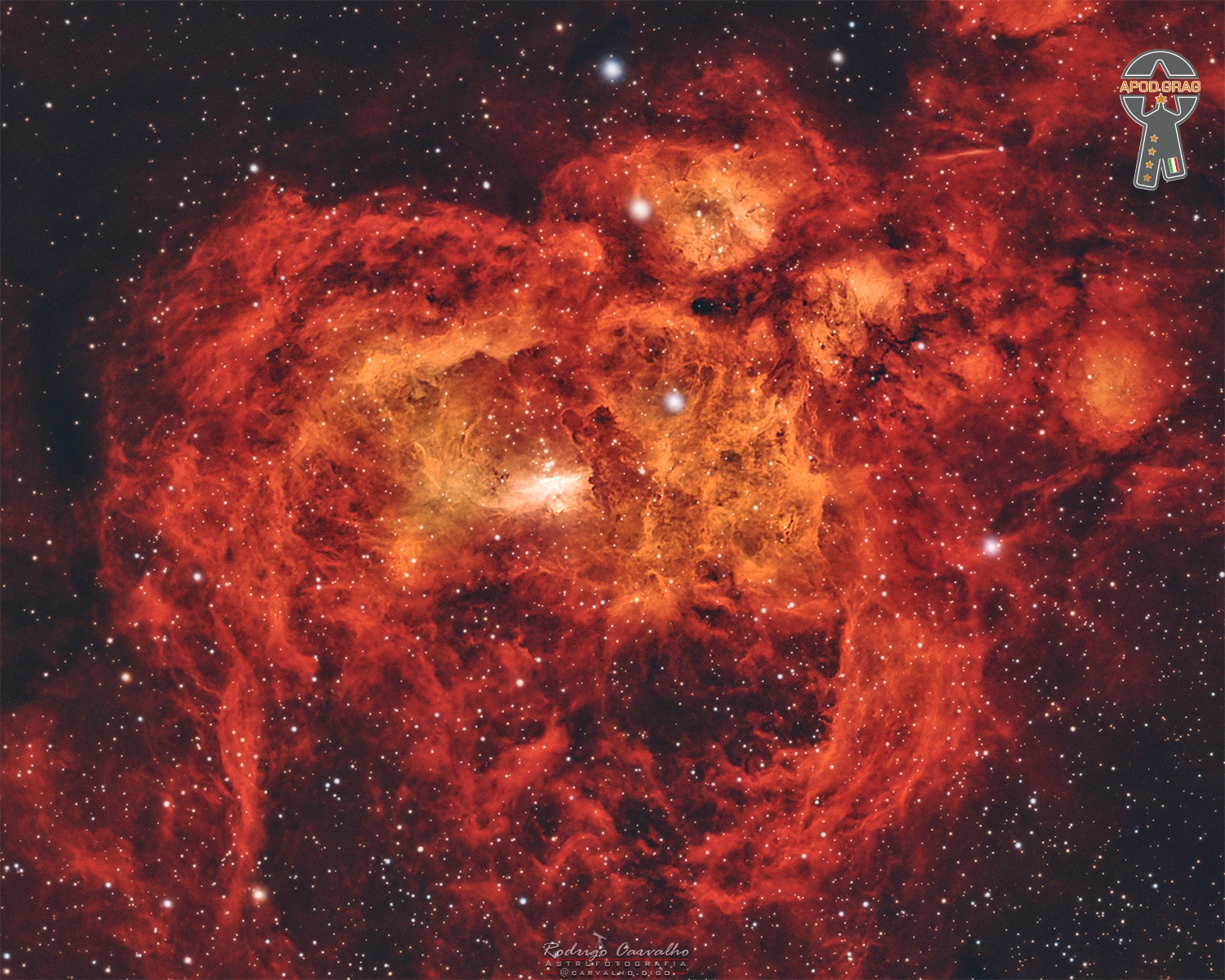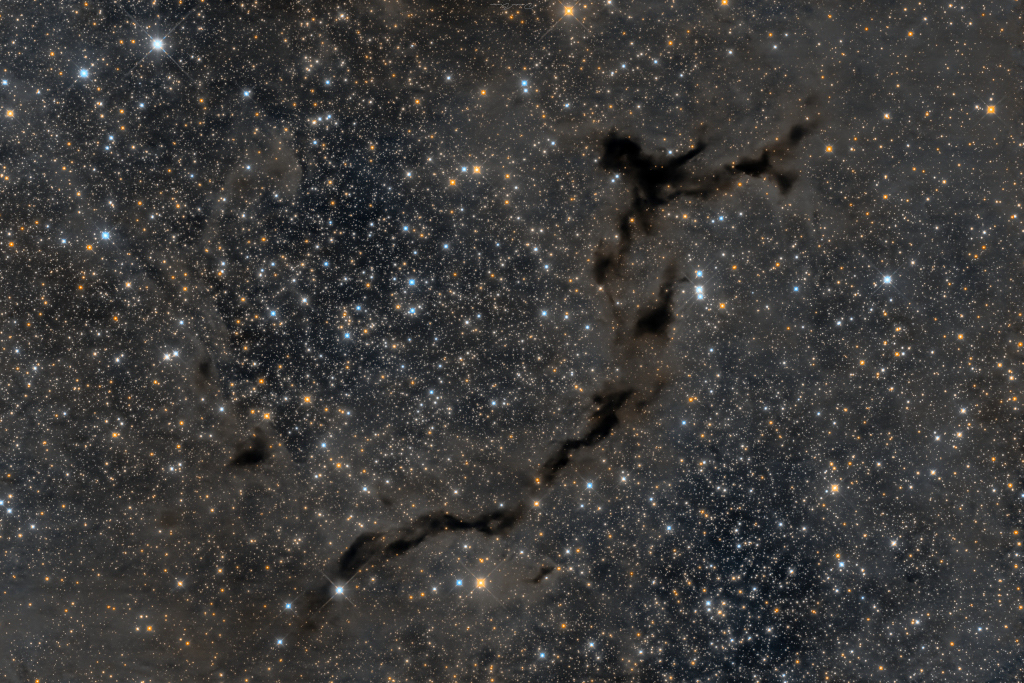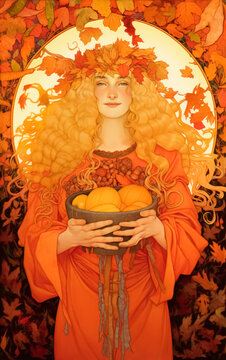Blog
Sharpless 119, is a large patch of emission in the constellation Cygnus and lies some 2200 light years away. It’s only 2-3 degrees away from the North American and Pelican Nebulae, so is often overlooked. The bright star is 68 Cygni, and is around magnitude 5 and is one of the stars responsible for ionizing the surrounding gas. Riddled throughout this complex are several brighter emission patches and dark nebulae with their own LBN and LDN designations.

William Overton Smith (September 22, 1926 – February 29, 2020) was an American clarinetist and composer. He worked extensively in modern classical music, third streamand jazz, and was perhaps best known for having played with pianist Dave Brubeckintermittently from the 1940s to the early 2000s. Smith frequently recorded jazz under the name Bill Smith, but his classical compositions are credited under the name William O. Smith.
more...Mikalojus Konstantinas Čiurlionis (Polish: Mikołaj Konstanty Czurlanis; 22 September [O.S. 10 September] 1875 – 10 April [O.S. 28 March] 1911) was a Lithuanian composer, painter, choirmaster, cultural figure, and writer in Polish.
Čiurlionis contributed to symbolism and Art Nouveau, and was representative of the fin de siècle epoch. He has been considered one of the pioneers of abstract art in Europe. During his short life, he composed about 400 pieces of music and created about 300 paintings, as well as many literary works and poems. The majority of his paintings are housed in the M. K. Čiurlionis National Art Museum in Kaunas, Lithuania. His works have had a profound influence on modern Lithuanian culture.
more...
Chief Sunday Adeniyi Adegeye MFR (born 22 September 1946), known professionally as King Sunny Adé, is a Nigerian jùjú singer, songwriter, and multi-instrumentalist.He is regarded as one of the first African pop musicians to gain international success and has been called one of the most influential musicians of all time.
Sunny Adé formed his backing band in 1967, eventually known as his African Beats. After achieving national success in Nigeria during the 1970s and founding his own independent label, Sunny Adé signed to Island Records in 1982 and achieved international success with the albums Juju Music (1982) and Synchro System (1983); the latter garnered him a Grammy nomination, a first for a Nigerian artist. His 1998 album Odu also garnered a Grammy nomination. Sunny Adé served as board chairmanof the Musical Copyright Society of Nigeria before it got licensed and was later appointed honorary president of the society in recognition of his leadership role in the society.
more...NGC 6357 is a diffuse nebula near NGC 6334 in the constellation Scorpius. The nebula contains many proto-stars shielded by dark discs of gas, and young stars wrapped in expanding “cocoons” or expanding gases surrounding these small stars. It is also known as the Lobster Nebula. This nebula was given the name War and Peace Nebula by the Midcourse Space Experiment scientists because of its appearance, which, in infrared images the bright, western part resembles a dove, while the eastern part looks like a skull. A petition by anime fans to rename it as the Madokami nebula, due to resemblance with a character, was unsuccessful.
It is located about 5,500 light years away from Earth.

Leonard Norman Cohen CC GOQ (September 21, 1934 – November 7, 2016) was a Canadian singer-songwriter, poet, and novelist. Themes commonly explored throughout his work include faith and mortality, isolation and depression, betrayal and redemption, social and political conflict, and sexual and romantic love, desire, regret, and loss. He was inducted into the Canadian Music Hall of Fame, the Canadian Songwriters Hall of Fame, and the Rock and Roll Hall of Fame. He was invested as a Companion of the Order of Canada, the nation’s highest civilian honour. In 2011, he received one of the Prince of Asturias Awards for literature and the ninth Glenn Gould Prize.
Cohen pursued a career as a poet and novelist during the 1950s and early 1960s, and did not begin a music career until 1966. His first album, Songs of Leonard Cohen(1967), was followed by three more albums of folk music: Songs from a Room (1969), Songs of Love and Hate (1971) and New Skin for the Old Ceremony (1974). His 1977 record Death of a Ladies’ Man, co-written and produced by Phil Spector, was a move away from Cohen’s previous minimalist sound.
In 1979, Cohen returned with the more traditional Recent Songs, which blended his acoustic style with jazz, East Asian, and Mediterranean influences. Cohen’s most famous song, “Hallelujah“, was released on his seventh album, Various Positions(1984). I’m Your Man in 1988 marked Cohen’s turn to synthesized productions. In 1992, Cohen released its follow-up, The Future, which had dark lyrics and references to political and social unrest.
Cohen returned to music in 2001 with the release of Ten New Songs, a major hit in Canada and Europe. His eleventh album, Dear Heather, followed in 2004. In 2005, Cohen discovered that his manager had stolen most of his money and sold his publishing rights, prompting a return to touring to recoup his losses. Following a successful string of tours between 2008 and 2013, he released three albums in the final years of his life: Old Ideas (2012), Popular Problems (2014), and You Want It Darker(2016), the last of which was released three weeks before his death. His posthumous, fifteenth, and final studio album Thanks for the Dance, was released in November 2019.
In 2023, Rolling Stone ranked him number 103 in their “200 Greatest Singers of All Time” list.
more...James Marcellus Arthur “Sunny” Murray (September 21, 1936 – December 7, 2017) was an American musician, and was one of the pioneers of the free jazz style of drumming.
Murray was born in Idabel, Oklahoma, where he was raised by an uncle who later died after being refused treatment at a hospital because of his race. He began playing drums at the age of nine. As a teen, he lived in a rough part of Philadelphia, and spent two years in a reformatory. In 1956, he moved to New York City, where he worked in a car wash and as a building superintendent. During this time, he played with musicians such as trumpeters Red Allen and Ted Curson, pianist Willie “The Lion” Smith, and saxophonists Rocky Boyd and Jackie McLean.
more...Charles Thomas Potter (September 21, 1918 – March 1, 1988) was an American jazz double bass player, best known for having been a member of Charlie Parker‘s “classic quintet”, with Miles Davis, between 1947 and 1950.
Born in Philadelphia, Pennsylvania, Potter had first played with Parker in 1944, in Billy Eckstine‘s band with Dizzy Gillespie, Lucky Thompson and Art Blakey.
Potter also performed and recorded with many other notable jazz musicians, including Earl Hines, Artie Shaw, Bud Powell, Count Basie, Sonny Rollins, Stan Getz, Max Roach, Eddie Heywood, Tyree Glenn, Harry “Sweets” Edison, Buck Clayton and Charles Lloyd.
more...Leroy Eliot “Slam” Stewart (September 21, 1914 – December 10, 1987 Englewood, NJ) was an American jazz double bass player, whose trademark style was his ability to bow the bass (arco) and simultaneously hum or sing an octave higher. He was a violinist before switching to bass at the age of 20.
Stewart found regular session work throughout the 1940s with Lester Young, Fats Waller, Coleman Hawkins, Erroll Garner, Art Tatum, Johnny Guarnieri, Red Norvo, Don Byas, Benny Goodman, and Beryl Booker. One of the most famous sessions he played on took place in 1945, when Stewart played with Dizzy Gillespie‘s group (which featured Charlie Parker). Out of those sessions came some of the classics of bebopsuch as “Groovin’ High” and “Dizzy Atmosphere“.
He taught at Binghamton University in Binghamton, New York, and at Yale University. He died of congestive heart failure on December 10, 1987, in Binghamton, aged 73.
more...Mt Zion Shabbat for the Soul Friday September 20th 2024 630pm with Jennifer Truss-Klien, Tami Morse and mick laBriola.
more...The Seahorse Nebula floats in silhouette against a rich, luminous background of stars. Seen toward the royal northern constellation of Cepheus, the dusty, dark nebula is part of a Milky Way molecular cloud some 1,200 light-years distant. It is also listed as Barnard 150 (B150), one of 182 dark markings of the sky cataloged in the early 20th century by astronomer E. E. Barnard. Packs of low mass stars are forming within, but their collapsing cores are only visible at long infrared wavelengths. Still, the colorful Milky Way stars of Cepheus add to this stunning galactic skyscape.

more...
Billy Bang (September 20, 1947 – April 11, 2011), born William Vincent Walker, was an American free jazz violinist and composer.
He later joined Sun Ra‘s band. In 1977, Bang co-founded the String Trio of New York (with guitarist James Emery and double bassist John Lindberg). Bang explored his experience in Vietnam in two albums: Vietnam: The Aftermath (2001) and Vietnam: Reflections (2005), recorded with a band which included several other veterans of that war. The latter album also features two Vietnamese musicians based in the United States (voice and đàn tranh zither).
The film Billy Bang Lucky Man documents his return to Vietnam in 2008 to collaborate with Vietnamese musicians and come to terms with his experiences in the war. A soundtrack album was released in 2021.
more...
More Posts
- SUPPORT UKRAINE Flamenco Fridays Tavi Jinariu
- Daily Roots Sister Nancy
- Piyyutim of the Jewish Diaspora
- Cosmos Arp 244
- Herb Alpert
- Freddie Green
- Red Norvo
- Big Maceo
- Johann Sebastian Bach
- FREE UKRAINE World Music Bandurist Victor Mishalow
- Daily Roots Prince Far I
- Tabby Diamond Memorial
- Cosmos NGC 55
- Norah Jones
- Eric Clapton
- Sonny Boy Williamson I
- STOP THE WAR IN UKRAINE World Music with HARDKISS
- Daily Roots Peter Tosh
- Cosmos NGC 3199
- Vangelis

